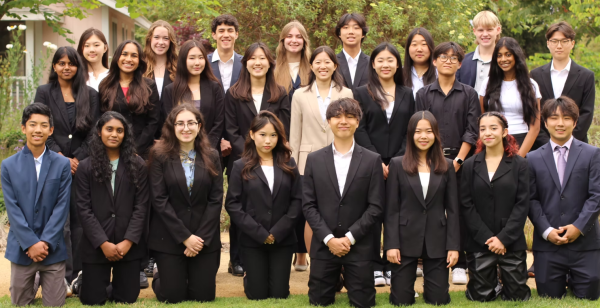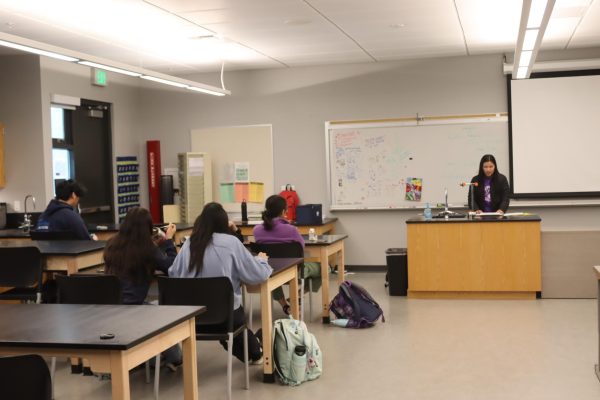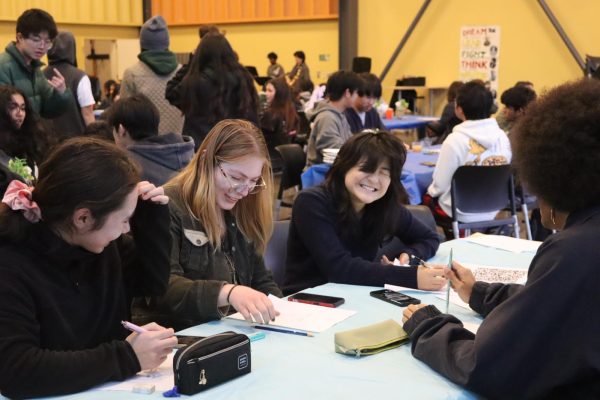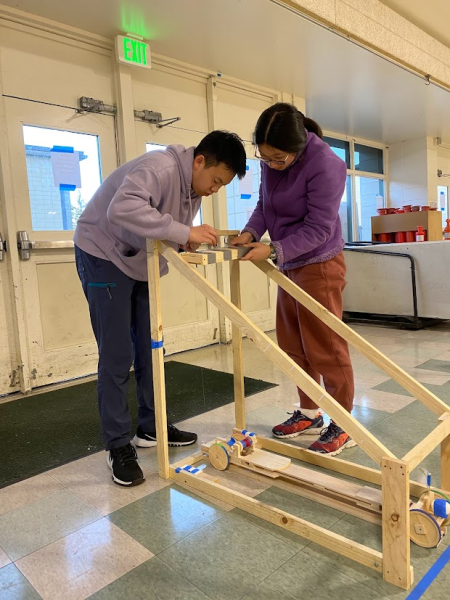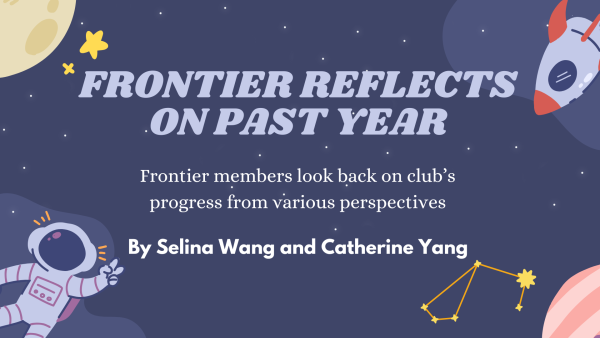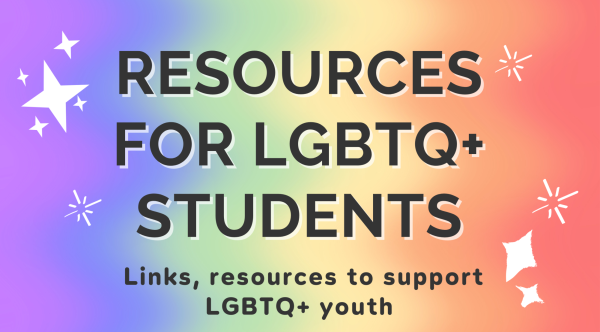2020 vision: looking back at an unforgettable year
Students reflect on their past year: academically and socially
Remote learning shapes future for education system
Students share their opinions on advantages, disadvantages of distance learning
As schools transitioned to remote learning, many students, including junior Kailash Menon, questioned whether remote learning would be a feasible replacement for in-person learning.
Ultimately, the introduction of new technology has dramatically improved instruction, sophomore Meghna Krishnan said.
“I get more sleep, [and] with online learning, I get more time to do other stuff outside of schoolwork,” Menon said in a Zoom interview. “[During in-person school] it takes time to get to school and get back from school. [Now I have extra] time to do work.”
Krishnan said that while remote learning is not ideal, it is manageable. Interaction is limited, but students are still learning, she said.
“I prefer in-person [learning] because I feel better when I’m able to socialize with people, and I think I have more fun at school [in person],” Krishnan said in an email. “[However], we have learned a lot about technology, especially when it comes to communicating online with our teachers and our peers, and [this] will influence education in the coming years.”
Principal Greg Giglio said he doesn’t see full remote learning being a practical way of learning in future years. However, there are some aspects of learning students and teachers enjoy, and may use in the classroom, he said.
“I could foresee a teacher standing in front of the class, [the students] have laptops [open] in front of them and they’re doing a Pear Deck, or in math [using] Desmos,” Giglio said in a Zoom interview. “[Using] those kinds of [apps] where [the teacher can say], ‘Hey, you have a really interesting way you solved that let me pull your screen up here and show the class.’”
Sophomore Melody Huang said online learning has been much more organized, in her experience, compared to previous years of in person school. Huang said she finds it helpful that, rather than having many digital and physical platforms, all items for school are in one place. She said she encourages teachers to continue using these digital platforms.
“I think [we] should [keep doing] worksheets digitally because it saves paper and helps [the environment],” Huang said in an email. “We should [also] use technology more [because] in general, using technology just makes life easier.”
Schools have been integrating technology into the classroom for many years now, Giglio said. With the introduction of remote learning, new platforms like Schoology were implemented for the students’ convenience.
“I like Schoology because it allows you to find everything in one place,” Krishnan said. “I have [also] liked a few of the things we have used as replacement for math [worksheets].”
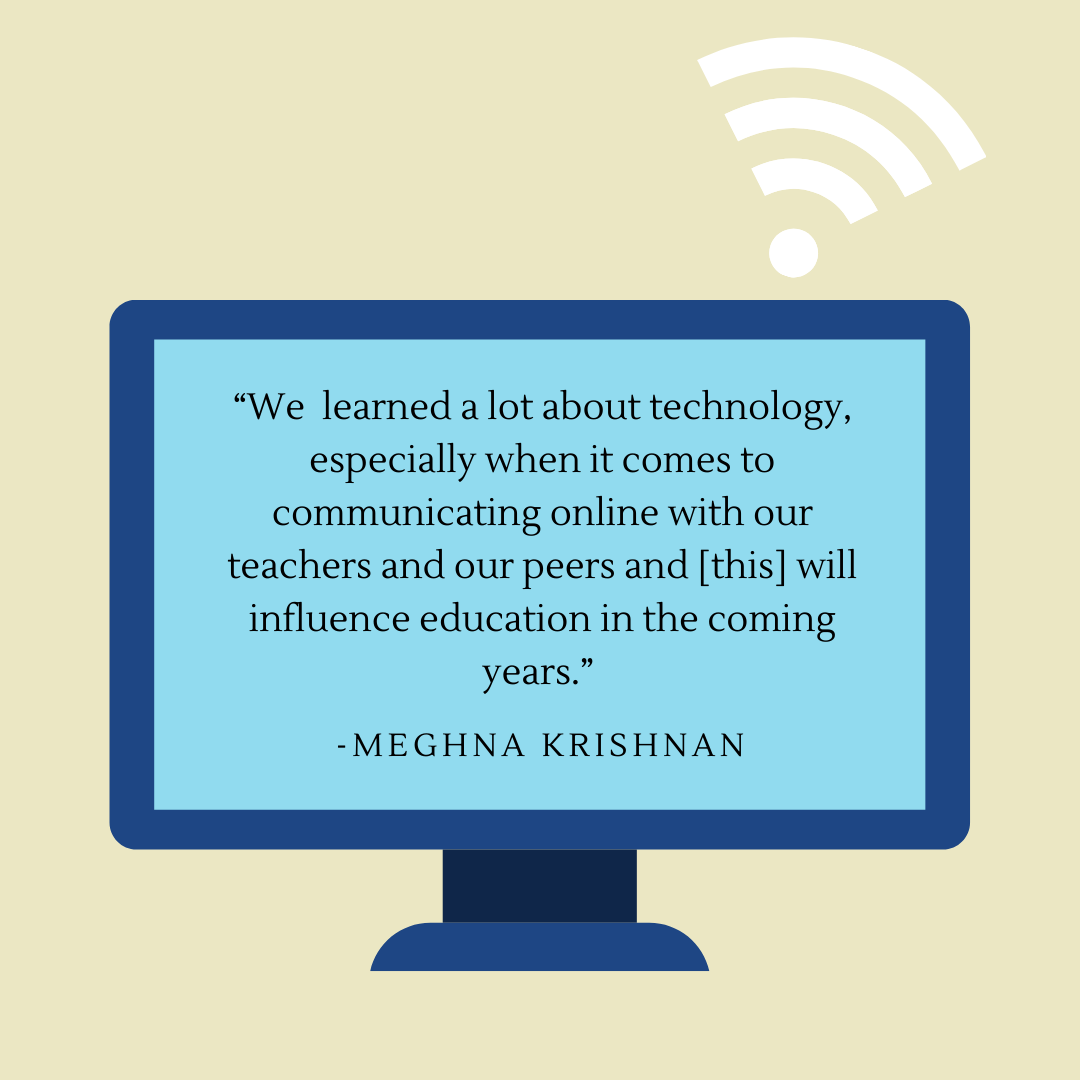
Another new program, Zoom, has helped lower social anxiety for students, Menon said. It is less intimidating to talk in front of a screen rather than in a classroom in front of many of your peers, Menon said. It helps people get out of their comfort zone and talk to teachers without being shy.
Despite the benefits of remote learning, Menon said he often faces difficulties, such as internet connection issues, which can make learning more challenging.
“Sometimes my wifi will cut out and I’ll have to miss a class,” Menon said. “Then I have to ask my friends and email teachers about what was going on in class.”
While remote learning is meant to be temporary, Huang said some parts of the country that suffer from extreme weather conditions might benefit from the implementation of remote learning in the future.
“In parts of the country where there is bad weather, there [may] not be [a need] any more [for] snow days since [students] can learn online now,” Huang said.
Remote learning has provided new perspectives for students and teachers alike, Giglio said. Menon said that while teachers will continue using technology when we return to school in person, he doesn’t want them to be too reliant on technology because students will be less engaged.
The past few months have brought light to lots of things people usually take for granted, Giglio said. Despite changes to education, the fundamental concepts still remain the same.
“Education has lasted through World Wars, other pandemics [and] depressions,” Giglio said. “One of the biggest things that’s going to happen is that there’s going to be a whole group of kids that are going to appreciate school in a way that they never had before.”
As a senior and third-year Epitaph staffer, Erin would advise any HHS student to join journalism and take Amstud, because both classes are slightly hectic...



